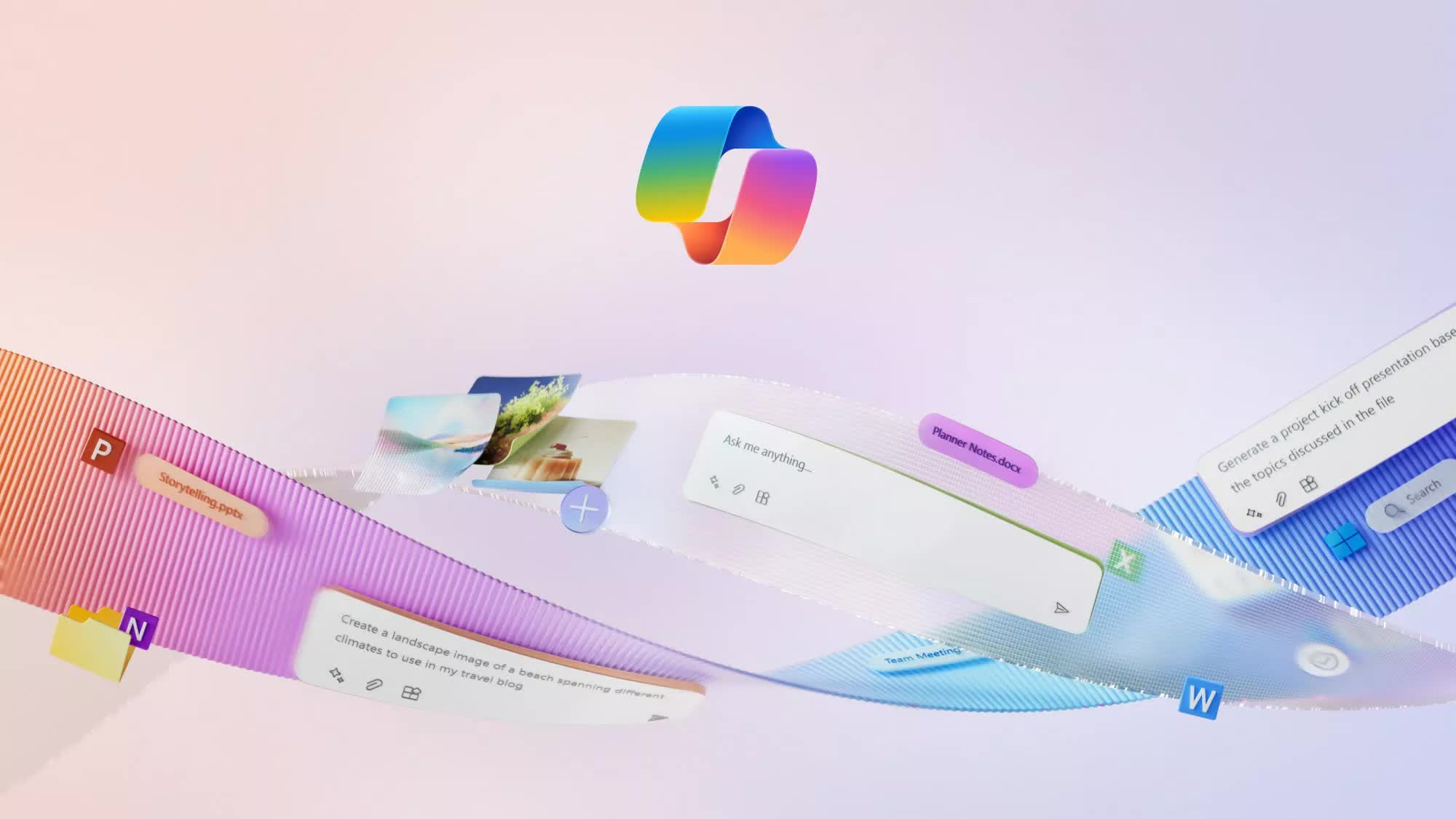Why it matters: Microsoft is doing everything it can to force people into using its Copilot AI tools, whether they want to or not. According to a new report, several customers have reported a problem: it doesn't perform as well as ChatGPT. But Microsoft believes the issue lies with people who aren't using Copilot correctly or don't understand the differences between the two products.
Microsoft's tactics when it comes to pushing Copilot onto users are comparable to its Windows 10 and 11 upgrade campaigns. The Redmond giant has launched a Pro subscription, is quietly installing the Copilot app on Windows PCs, and recently released the new Surface Pro 10 and Surface Laptop 6 with dedicated Copilot buttons.
Despite these efforts, Copilot is far from universally loved. According to Business Insider, which cites employees with direct knowledge of customer feedback, one of the top complaints about the tool is that it simply isn't as good as ChatGPT.
"Every time a customer starts using it, they start comparing it to ChatGPT and saying, 'Aren't you guys using the same technology?'" one of the people said.
Microsoft employees told BI that Copilot for Microsoft 365, the version that has reached most customers so far, has received mixed to slightly positive feedback.
One complaint that has repeatedly been raised by customers is that Copilot doesn't compare to ChatGPT. Microsoft says this is because customers don't understand the differences between the two products: Copilot for Microsoft 365 is built on the Azure OpenAI model, combining OpenAI's large language models with user data in the Microsoft Graph and the Microsoft 365 apps. Microsoft says this means its tools have more restrictions than ChatGPT, including only temporarily accessing internal data before deleting it after each query.
Some customers are also said to be confused as to why the "work" version of Copilot doesn't offer the same speed and detail as the "web" version. Microsoft is introducing a toggle so users can quickly switch between the two versions to understand when web data or internal data is being queried.
In addition to blaming customers' apparent ignorance, Microsoft employees say many users are just bad at writing prompts. "If you don't ask the right question, it will still do its best to give you the right answer and it can assume things," one worker said. "It's a copilot, not an autopilot. You have to work with it," they added, which sounds like a slogan Microsoft should adopt in its marketing for Copilot.
The employee added that Microsoft has hired partner BrainStorm, which offers training for Microsoft 365, to help create instructional videos to help customers create better Copilot prompts. Microsoft itself has also provided lots of support on how to create prompts for its AI tools, but it seems some users are still struggling.
